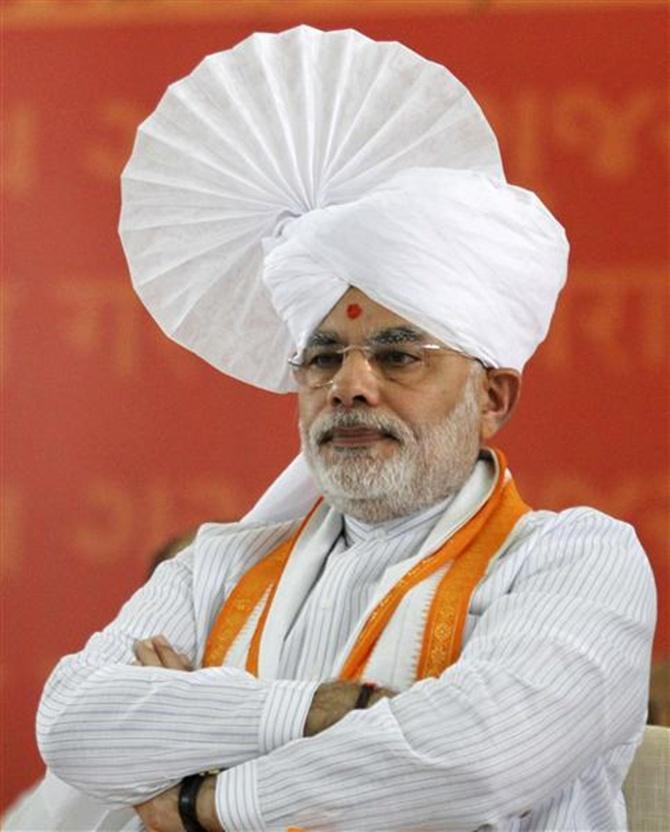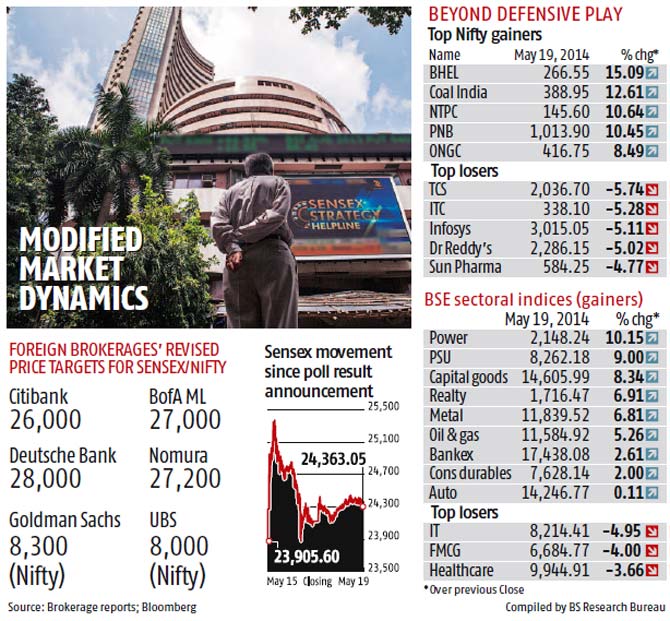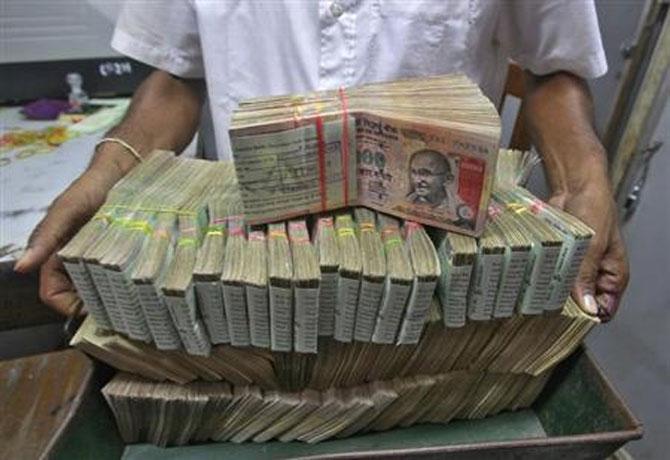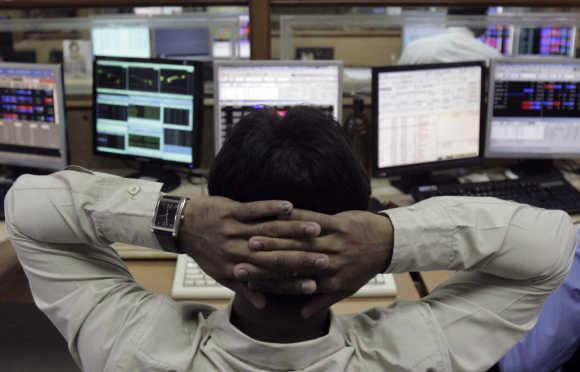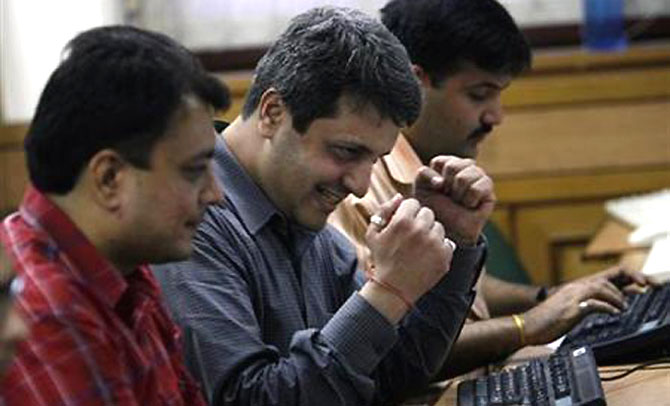 | « Back to article | Print this article |
Modi rally charges up power, infra stocks
The Modi effect continued to create ripples in the market on Monday, the first full trading session since the election outcome.
Though the benchmark indices gained just one per cent, the real action was seen in the small- and mid-caps, especially in companies dependent on the domestic economy.
Investors dumped shares in the technology, pharma and consumer goods space - which had been market darlings for the past few years - for stocks in the power and infrastructure sectors, which until recently had become untouchables, with their valuations crashing to historic lows.
Click NEXT to read more..
Modi rally charges up power, infra stocks
Stocks in the power, infrastructure and realty sectors saw heavy buying on Monday.
JP Power surged 30 per cent, while GMR Infra gained 18 per cent and Reliance Infra 17 per cent. Several state-owned firms also got a boost: BHEL and Coal India vaulted 12 per cent each.
Analysts said an aggressive buying in these stocks was spurred by hopes a Narendra Modi-led government would push economic reforms and tackle macro challenges like fiscal deficit and inflation better.
The BSE mid-cap index rose 4.2 per cent and BSE small cap 5.8 per cent.
The BSE Power, PSU and Capital goods indices saw sharper gains of around 10 per cent each, even as the benchmark Sensex and Nifty rose only one per cent each.
Click NEXT to read more...
Modi rally charges up power, infra stocks
Analysts said an aggressive buying in these stocks was spurred by hopes a Narendra Modi-led government would push economic reforms and tackle macro challenges like fiscal deficit and inflation better.
The BSE mid-cap index rose 4.2 per cent and BSE small cap 5.8 per cent.
The BSE Power, PSU and Capital goods indices saw sharper gains of around 10 per cent each, even as the benchmark Sensex and Nifty rose only one per cent each.
"Since the 2008 financial crisis, the market has chosen quality over junk, growth over value, defensives over cyclicals, and large-caps over small-caps.
We are now seeing a growing traction for extreme growth or non-quality factors," said Ridham Desai, equity strategist, Morgan Stanley India.
Click NEXT to read more...
Modi rally charges up power, infra stocks
Most brokerages have started advising their clients to aggressively bet on companies focused on the domestic economy.
"We think sector rotation towards domestic cyclicals should be a strategy investors should pursue. While some of these have moved up, valuations are arguably not stretched," noted Gautam Chhaochharia, head of India research at UBS.
Jyotivardhan Jaipuria, head of research at Bank of America Merrill Lynch wrote that the process of "closing of the performance and valuation gap between the domestic cyclicals and the exporters" had began and this trade would continue if there was a recovery in the domestic economy.
Click NEXT to read more...
Modi rally charges up power, infra stocks
Shares in the IT, pharma and consumer goods space took a sharp beating due to this shift.
The Tata Consultancy Services scrip dropped nearly six per cent, while ITC and Infosys fell five per cent each. Pharma majors Dr Reddy's and Sun Pharma also declined about five per cent each.
"With the economic turnaround and a manufacturing revival taking center stage, we recommend investors to intensify focus on domestic cyclicals and policy-improvement plays," Abhay Laijawala, head of research, Deutsche Equities India, said in a client note.
Click NEXT to read more...
Modi rally charges up power, infra stocks
The Indian markets also saw a host of upgrades, with several foreign brokerages increasing their targets for benchmark Indian indices.
US-based Goldman Sachs raised its 12-month target for the National Stock Exchange's Nifty from 7,600 to 8,300, implying a 14 per cent upside from the present level.
Japan's Nomura raised its year-end target for BSE's Sensex from 24,700 to 27,200, while Citibank increased its target to 26,300.
